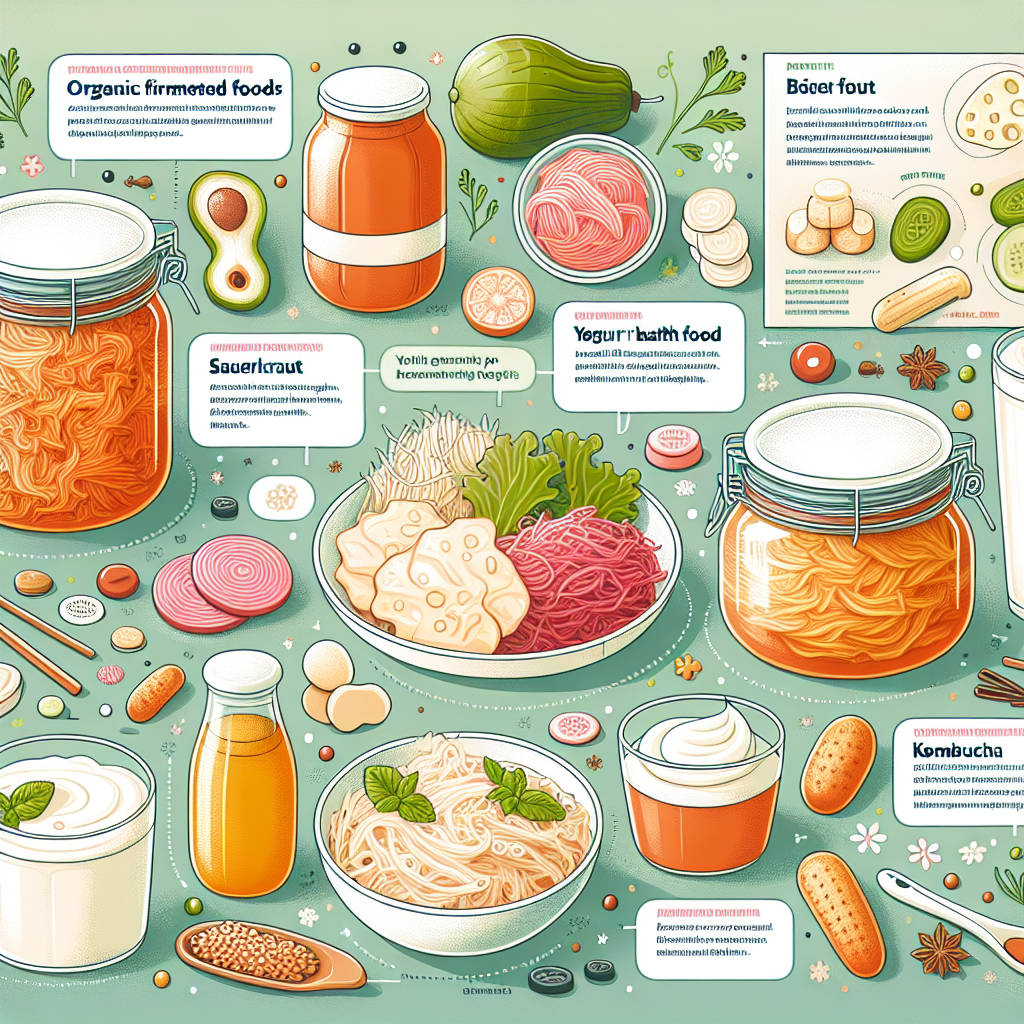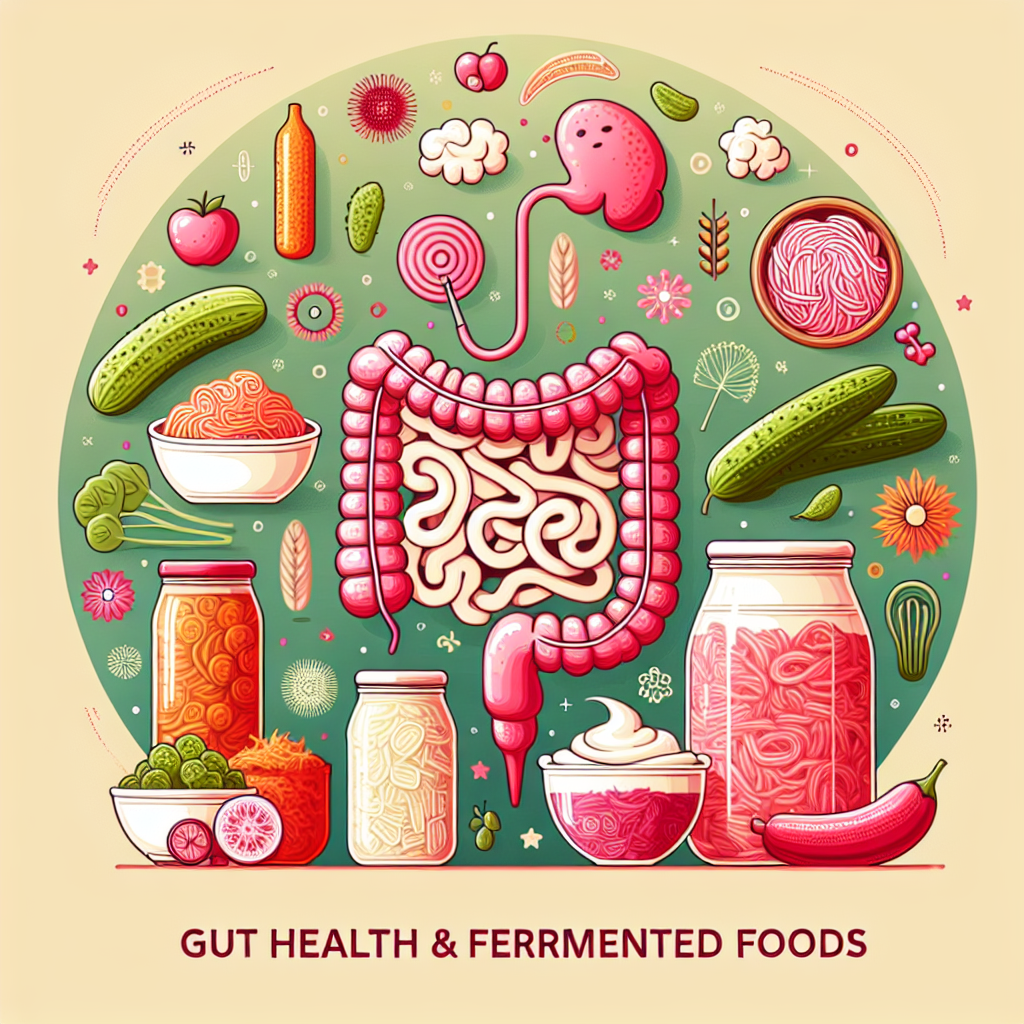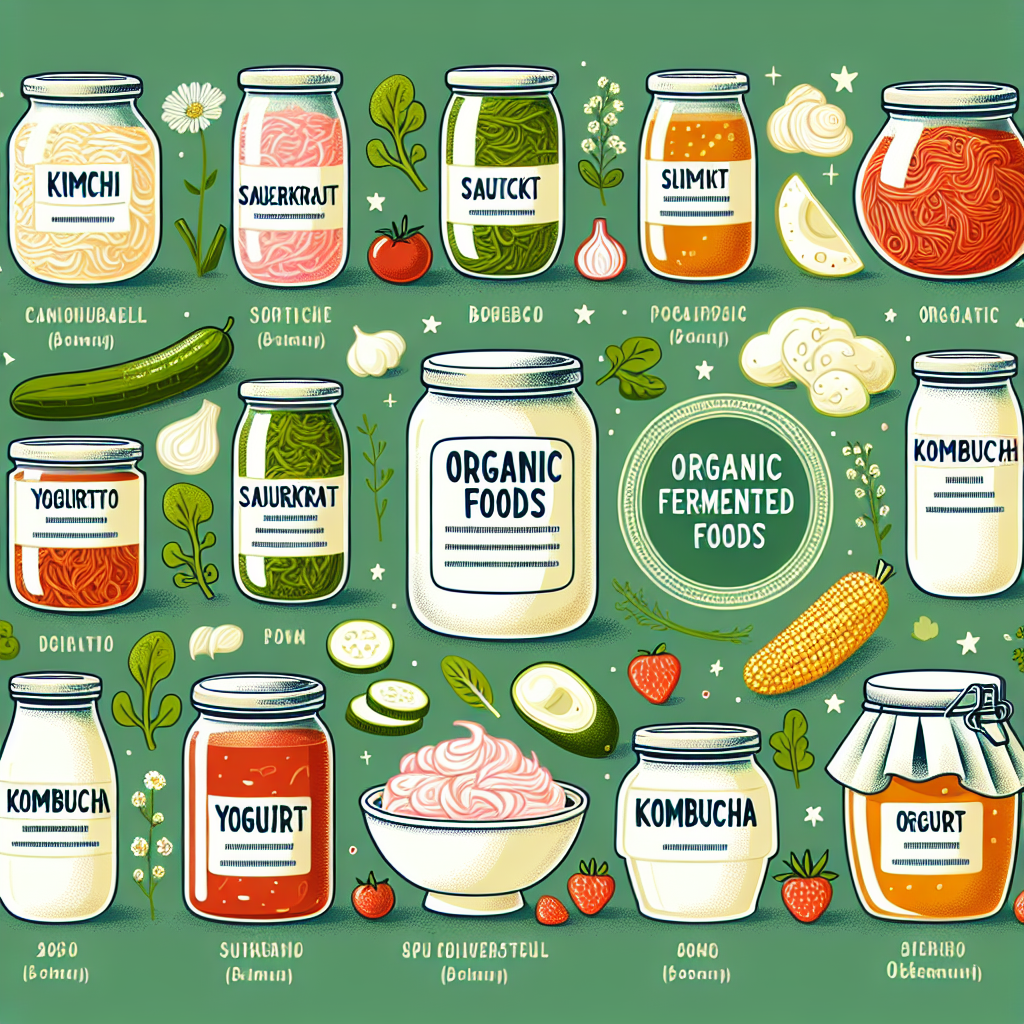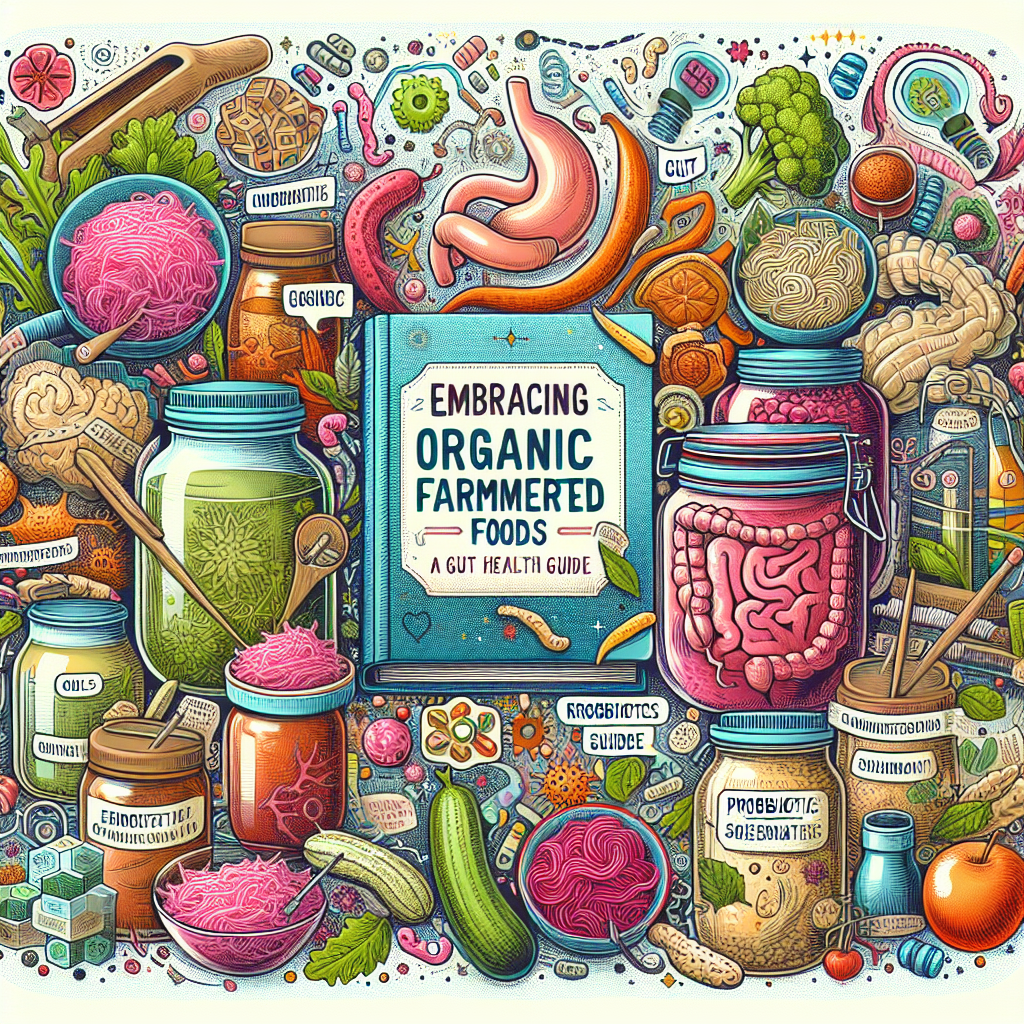The Benefits of Organic Fermented Foods for Gut Health

Organic fermented foods have been a part of human diets for thousands of years. From kimchi in Korea to sauerkraut in Germany, these foods are not only delicious but also offer a host of health benefits, particularly for gut health. The fermentation process involves the action of beneficial bacteria, yeasts, or other microbes that convert carbohydrates into alcohol or organic acids. This not only preserves the food but also enhances its nutritional profile.
The Science Behind Fermentation

Fermentation is a metabolic process where microorganisms such as bacteria, yeast, or fungi break down carbohydrates into simpler compounds like alcohol or organic acids. The most well-known type of fermentation is lactic acid fermentation, which is used in making foods like yogurt, sauerkraut, and kimchi. The primary bacteria involved in this process are Lactobacillus species.
During fermentation, these beneficial microbes produce enzymes that break down proteins, fats, and carbohydrates into more easily digestible forms. They also produce a variety of bioactive compounds such as vitamins (B vitamins and vitamin K2), short-chain fatty acids, and antimicrobial substances that can help protect against harmful bacteria.
One of the key benefits of fermented foods is the presence of probiotics, which are live microorganisms that confer health benefits to the host when consumed in adequate amounts. Probiotics help to maintain a healthy balance of gut microbiota, which plays a crucial role in digestion, immune function, and even mental health.
Gut Health and Fermented Foods

The human gut microbiome is a complex community of trillions of microorganisms that live in our digestive tracts. These include bacteria, viruses, fungi, and other microbes. A healthy gut microbiome is essential for proper digestion, nutrient absorption, and immune function. An imbalance in the gut microbiota, known as dysbiosis, has been linked to various health issues such as irritable bowel syndrome (IBS), inflammatory bowel disease (IBD), allergies, and even obesity.
Consuming fermented foods can help to populate the gut with beneficial bacteria, thus promoting a healthy balance of gut microbiota. The probiotics found in these foods can help to:
- Enhance digestion and nutrient absorption.
- Boost the immune system by increasing the production of antibodies and stimulating immune cells.
- Reduce inflammation in the gut and throughout the body.
- Improve mental health through the gut-brain axis, which is the bidirectional communication between the gut and the brain.
Benefits of Organic Fermented Foods
While all fermented foods can be beneficial for gut health, opting for organic fermented foods can provide additional advantages. Organic foods are grown without the use of synthetic pesticides, herbicides, or genetically modified organisms (GMOs). This means that organic fermented foods are free from residues of harmful chemicals that could potentially disrupt the gut microbiota.
Moreover, organic foods are often richer in nutrients compared to conventionally grown foods. A study published in the British Journal of Nutrition found that organic crops have higher concentrations of antioxidants, which can further contribute to overall health. When you ferment organic produce, you are not only getting the benefits of probiotics but also a higher nutrient density.
Popular Organic Fermented Foods

There are many types of fermented foods that you can incorporate into your diet. Here are some popular organic fermented foods and their benefits:
Yogurt
Yogurt is perhaps the most well-known fermented food. Made by fermenting milk with specific bacterial cultures (usually Lactobacillus bulgaricus and Streptococcus thermophilus), yogurt is rich in probiotics, calcium, protein, and B vitamins. When choosing yogurt, opt for organic, plain, and unsweetened varieties to avoid added sugars and artificial ingredients.
Sauerkraut
Sauerkraut is made by fermenting shredded cabbage with lactic acid bacteria. It is a great source of probiotics, fiber, vitamins C and K, and antioxidants. Make sure to choose raw, unpasteurized sauerkraut, as pasteurization can kill the beneficial bacteria.
Kimchi
Kimchi is a traditional Korean dish made from fermented vegetables such as cabbage and radishes, seasoned with chili peppers, garlic, ginger, and other spices. It is rich in probiotics, vitamins A, B, and C, and contains compounds that have anti-inflammatory and antioxidant properties.
Kefir
Kefir is a fermented dairy product similar to yogurt, but with a thinner consistency. It is made by adding kefir grains (a combination of bacteria and yeast) to milk. Kefir is an excellent source of probiotics and contains a broader range of bacteria and yeasts than yogurt. It is also rich in calcium, protein, and B vitamins.
Kombucha
Kombucha is a fermented tea made by adding a symbiotic culture of bacteria and yeast (SCOBY) to sweetened black or green tea. The fermentation process produces a slightly effervescent drink that is rich in probiotics, B vitamins, and organic acids. Kombucha is known for its potential detoxifying and antioxidant properties.
Miso
Miso is a Japanese seasoning made by fermenting soybeans with salt and a type of fungus called koji. It is used in soups, marinades, and sauces and is rich in probiotics, protein, and vitamins. Miso also contains isoflavones, which have been shown to have antioxidant and anti-inflammatory properties.
How to Make Fermented Foods a Part of Your Regular Diet
Incorporating fermented foods into your daily diet is easier than you might think. Here are some tips to help you get started:
Start Small
If you are new to fermented foods, start with small amounts to allow your body to adjust. Too much too soon can cause digestive discomfort such as gas and bloating. Begin with a tablespoon of sauerkraut or a small cup of kefir and gradually increase the amount as your body adapts.
Diversify Your Choices
Variety is key when it comes to fermented foods. Different fermented foods contain different strains of probiotics, so consuming a variety can help to diversify your gut microbiota. Try to include a mix of dairy-based (like yogurt and kefir) and plant-based (like sauerkraut and kimchi) fermented foods in your diet.
Make it a Habit
Consistency is important when it comes to reaping the benefits of fermented foods. Aim to include a serving of fermented food in your diet every day. This could be a cup of yogurt for breakfast, a glass of kefir as a snack, or a side of kimchi with dinner.
DIY Fermentation
Making your own fermented foods can be a rewarding and cost-effective way to ensure you are getting high-quality, organic products. There are many resources available online that provide step-by-step instructions for fermenting vegetables, making yogurt, or brewing kombucha at home.
Read Labels Carefully
When purchasing fermented foods, it is important to read labels carefully. Look for products that mention “live and active cultures” and avoid those that are pasteurized, as pasteurization can kill the beneficial bacteria. Additionally, choose organic options whenever possible to avoid exposure to pesticides and GMOs.
Conclusion
Embracing organic fermented foods can be a delicious and effective way to improve your gut health. The beneficial bacteria found in these foods can help to maintain a healthy balance of gut microbiota, which is crucial for digestion, immune function, and overall well-being. By incorporating a variety of fermented foods into your daily diet, you can take a proactive step towards better health. Start small, diversify your choices, make it a habit, and enjoy the many benefits that organic fermented foods have to offer.
